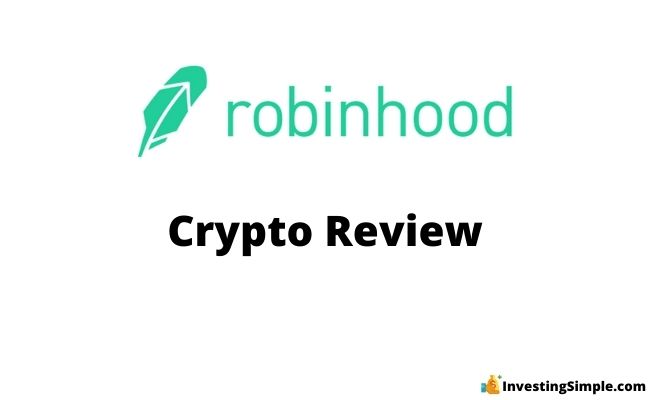





If cryptocurrency truly is the money of the future, it’s about time we dive into one of the most well-known purveyors of the asset, Robinhood.
Though known for its free stock trades, Robinhood also allows its users to buy and sell cryptocurrency. Robinhood now supports orders for around 30 cryptocurrencies, including some newer additions that expand beyond the original core offerings. This gives users great access to many popular coins but still limits the scope compared to dedicated crypto exchanges.
Robinhood gained its popularity as a brokerage account when it became one of the first to waive commissions on trades for stocks and ETFs. Recently, it has even introduced fractional shares to make its offering even more advantageous to young investors.
Both of these features are available with Robinhood Crypto. Investors can purchase fractional coins without fees with the one and only, Robinhood!
In this full Robinhood crypto review updated for 2025, we will examine what makes Robinhood Crypto stand out from the crowd, highlight recent enhancements, and explain why you might want to give it a try or consider other options.
For those less familiar, cryptocurrency is a virtual form of money not issued by any central authority like a government.
Cryptocurrencies are secured by cryptography and run on decentralized blockchain networks. This structure makes them almost impossible to counterfeit because multiple nodes continuously verify transactions.
Coins can be sent directly to another individual or business and used as payment for goods or services. One upside is that these transfers are typically done without traditional processing fees.
Robinhood opened the world of digital currencies to average investors through Robinhood Crypto, removing barriers to entry for many users who had no clear options before.
Since launching crypto services in 2018 with Bitcoin and Ethereum, Robinhood has significantly expanded its list. As of early 2025, it supports nearly 30 cryptocurrencies, including Bitcoin SV, Bitcoin Cash, Ethereum Classic, Dogecoin, Shiba Inu, Polygon, Cardano, Solana, Litecoin, and more.
The company actively updates offerings based on regulatory shifts and market demand, though it currently does not support crypto-to-crypto trading. Users can buy and sell cryptocurrencies only against USD.
Robinhood offers 24/7 commission-free trading on cryptocurrencies. However, instead of explicit fees, Robinhood incorporates markups or spreads, which means effective trading costs may be higher than some competitors. For example, its average cost to trade popular cryptos like Ethereum is competitive but can be more than platforms like Coinbase or Kraken depending on market conditions.
The service also launched in the EU in late 2023, with plans to enter Asian markets by late 2025.
The crypto trading interface is designed for simplicity. It shares the same app as Robinhood’s stock trading, allowing users to manage financial assets in one place. Searching for crypto and buying fractional amounts is straightforward, making it beginner-friendly and accessible.
Advanced features, such as the newly introduced desktop platform “Robinhood Legend,” provide customizable layouts and technical indicators to appeal to more experienced traders as well.
Robinhood supports instant access to deposited funds for trading, with a base limit of $1,000 rising up to $50,000 or more as your portfolio grows or if you use Robinhood Gold.
Your full deposit for crypto trading is available immediately, with no 3-5 business day waiting periods to settle cash as seen on some platforms.
Robinhood Crypto supports both market and limit orders. Market orders execute at the next available price but are capped by a collar (1% for buys, 5% for sells) to protect users from sudden price swings. Limit orders only execute at your specified price or better, offering added price protection.
Robinhood holds most crypto in cold storage and maintains insurance policies to protect against theft. Recent security upgrades to the crypto wallet include multi-factor authentication, identity verification, and email/phone confirmation for transfers.
Users can transfer crypto smoothly with the new wallet, making it easier to move coins in and out of Robinhood securely.
Robinhood Crypto operates as a separate entity from Robinhood Financial. While your brokerage account benefits from SIPC insurance and cash management accounts have FDIC insurance, crypto holdings do not have federal insurance protection.
"Cryptocurrencies are not covered by either FDIC or SIPC insurance. Legislative and regulatory changes may adversely affect their use, transfer, and value." - Robinhood Crypto Risk Disclosure
Despite past security incidents and regulatory fines, Robinhood continues to enhance its user protections and comply with evolving regulations.
Robinhood allows fractional coin purchases, letting investors enter the market with small amounts rather than buying whole coins. This is helpful given high prices of coins like Bitcoin.
However, fractional ownership does not reduce volatility risk and diversifying across assets remains important.
There is a limit of up to $350,000 in purchases per coin, which is more than adequate for most investors.
Cashing out crypto is as simple as selling coins on the app and withdrawing funds. Withdrawals require the standard 5-business-day waiting period after sales.
Robinhood’s new crypto wallet enables secure transfers between Robinhood and other platforms with verified wallet addresses. This makes off-platform cryptocurrency management easier.
Crypto-to-crypto trades, however, are not supported — only crypto-to-fiat (USD).
Guides for transfers include:

Robinhood Crypto and Robinhood Financial are distinct business entities, meaning crypto accounts and brokerage accounts are held separately. Margin accounts apply only to Robinhood Financial, so you cannot use margin to buy crypto or use crypto as collateral.
Despite separation, Robinhood may restrict or suspend both accounts simultaneously if it benefits the platform’s policies, though such cases are rare.
In summary, Robinhood continues to impress with its sleek platform, commission-free trading, and ease of use. Its recent expansions into new markets and addition of staking features extend its appeal, particularly for beginner and intermediate investors looking for an all-in-one trading app that combines stocks and crypto.
However, limitations such as the relatively narrow cryptocurrency selection, lack of crypto-to-crypto trading pairings, and reliance on markups mean it may not yet fully satisfy advanced crypto traders. The absence of federal insurance for crypto holdings is an important consideration for risk-conscious investors.
Despite these caveats, given that Robinhood is free and instantly accessible, it remains a very good starting point for those new to crypto investing in 2025, especially if you value ease and want your whole portfolio in one place.